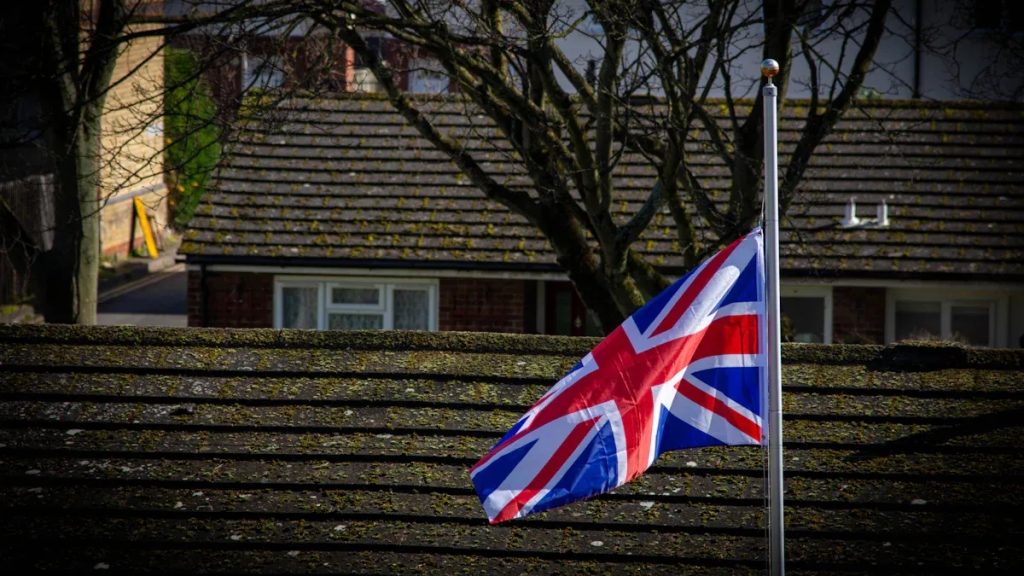You might notice differences between British vs American words when you speak or write English. For instance, in the UK, a cookie is called a “biscuit,” while in the US, “pants” refers to what the British call “trousers.” These British vs American words differences go beyond vocabulary—they include spelling and pronunciation variations as well. Americans pronounce the “r” sound clearly, whereas many British speakers do not. Grammar rules can also vary between the two. Check out the chart below to see some common British vs American words.
- Why Do Vocabulary Difference Exists?
- Key Categories of Vocabulary Differences
- Examples of Commonly Confused Words
- Resources for Exploring Vocabulary Differences
- FAQs
Why Do Vocabulary Difference Exists?
You may ask why British and American English have different words. These changes took a long time to happen. They grew because of history, culture, and where people lived. When English settlers came to America, they brought many dialects from Britain. As time passed, the two groups lived apart. Their languages changed in special ways.
- After America became independent, many cultures mixed there. People from Europe, Africa, and other places brought new words. American English has words from Indigenous languages like “canoe” and “tomahawk.” Words like “gumbo” and “jazz” came from African and Caribbean cultures.
- British English kept changing in the UK and its colonies. It kept some old words and took some from French, Latin, and other languages. British rule also spread British English to many Commonwealth countries.
- Noah Webster was an American who wanted a new American style. He made spelling easier, like “color” instead of “colour.” This made big changes in spelling and vocabulary.
- The Atlantic Ocean kept the two groups far apart. This distance helped each group make its own slang and sayings. American English uses baseball words, but British English uses cricket words.
- Today, media and pop culture are very important. American movies, TV, and music share American English with the world. British people may say “movie” instead of “film” or “take a shower” because of this.
Note: Because of global media, you will see both British and American words in daily life.
Key Differences in Vocabulary
People use different words for common things. Here is a list of words that are not the same in British and American English:
| British English | American English | Description |
|---|---|---|
| trousers | pants | In the UK, “pants” means underwear. In the US, “pants” are outerwear. |
| flat | apartment | A place to live in a building. |
| biscuit | cookie | A sweet baked treat. In the US, “biscuit” is a type of bread. |
| crisps | chips | Thin, crunchy potato snacks. |
| chips | fries | Fried potato sticks. |
| lift | elevator | A machine that moves people up and down in buildings. |
| lorry | truck | A large vehicle for transporting goods. |
| dustbin | trash can | A container for garbage. |
| shop | store | A place where you buy things. |
| jumper | sweater | A knitted upper garment. |
| trainers | sneakers | Athletic shoes. |
| holiday | vacation | Time off from work or school. |
| car park | parking lot | A place to park cars. |
| chemist | drugstore | A place to buy medicine. |
Some word differences can be confusing. If you ask for “pants” in the UK, you might get underwear, not trousers. The word “jumper” means “sweater” in British English. In American English, a “jumper” is a kind of dress. These differences show why it is good to know both types.
Slang and Local Expressions
Slang and sayings make things even harder. British and American English have their own slang and phrases. For example, “Bob’s your uncle” in the UK means “there you have it.” This phrase is not used in American English. Americans might say “hit it out of the park.” This comes from baseball and means to do something very well. These different sayings can confuse people who do not know the culture.
Here is a table of some tricky slang and local words:
| Phrase/Term | British English Meaning | American English Meaning |
|---|---|---|
| rubber | eraser | contraceptive |
| biscuit | cookie | buttery bread |
| pissed | drunk | angry |
| trainer | sneakers | fitness expert |
| jumper | sweater | someone jumping from a height |
| chips | fries | potato crisps |
You will also hear different ways to say words. Americans usually say the “r” sound at the end of words. Many British speakers do not. For example, “car” sounds different in each type. These differences make English interesting but sometimes hard for learners.
Why These Differences Matter
Knowing these word differences helps you avoid mistakes. If you travel, study, or work with people from other countries, knowing both types of words helps you talk clearly. Translators and businesses also watch these differences to make sure their messages are clear.
Tip: When you learn English, notice which type you use. Practice both British and American English words to become a better speaker.
These changes show how language grows with time, culture, and contact with others. By learning about British and American English, you can better understand how English is used around the world.
Key Categories of Vocabulary Differences
British English and American English have different spellings. These spelling changes are not random. They happened because of history and language contact. Some changes were planned. Noah Webster wanted to make spelling easier. He changed words like “colour” to “color.” He also changed “honour” to “honor.” These changes made American English different from British English.
Researchers study these spelling differences in many books. They use special ways to count how often spellings appear. For example, they check how many times “colour” is in British books. They also check how often “color” is in American books. These studies show spelling differences are real. You can see these changes in newspapers, books, and online.
The reasons for these differences come from English history. British English keeps some old spellings. It also uses spellings from French or German. After the Norman Conquest, English took many French words. This happened in law, food, and fashion. Words like “debris” and “rendezvous” use French spelling. German gave English words like “kindergarten” and “hamburger.” These things help explain why British English keeps some French or German spellings.
You can look at this table to see common spelling patterns:
| Spelling Pattern | British English Examples | American English Examples |
|---|---|---|
| -our vs. -or | colour, flavour, honour | color, flavor, honor |
| -re vs. -er | centre, theatre, fibre | center, theater, fiber |
| -ise vs. -ize | organise, realise | organize, realize |
| -yse vs. -yze | analyse | analyze |
| -logue vs. -log | catalogue, dialogue | catalog, dialog |
| ae/oe vs. e | anaemia, oestrogen | anemia, estrogen |
| Double consonants | travelled, labelled | traveled, labeled |
Tip: To remember these spelling changes, learn the patterns. Practice with real examples. Think about who will read your writing. This helps you pick the right spelling.
Spelling differences are just one way British and American English are not the same. If you learn both, you will know more words. You will also avoid getting confused.
Examples of Commonly Confused Words
When you learn English, you may see some words that look or sound the same. These words can mean different things. This can make talking with people from other countries hard. You will notice this with british vs american words.
Pronunciation Differences
Some words sound very different in british english and american english. For example, “schedule” is said “shed-yool” in british english. In american english, it is “skej-ool.” The word “lieutenant” is “lef-ten-uhnt” in british english. In american english, it is “loo-ten-uhnt.” These differences can make it hard to understand someone. You might know the word but not know how it sounds.
Tip: Listen to how people say words. The same word can sound new because of pronunciation.
Vocabulary and Usage
Some british vs american words have different meanings. They are also used in different ways. Here is a table to show these differences:
| British English | American English | Meaning/Usage Difference |
|---|---|---|
| biscuit | cookie | British: sweet cracker; American: cookie |
| chips | French fries | British: thin potato snacks; American: fried potato strips |
| boot | trunk | British: car storage; American: footwear |
| bonnet | hood | British: car hood; American: head covering |
| crisps | chips | British: potato chips; American: fries |
| aubergine | eggplant | British: aubergine; American: eggplant |
| candy floss | cotton candy | British: spun sugar treat; American: cotton candy |
You will also see grammar differences with prepositions. In british english, people say “at the weekend.” In american english, people say “on the weekend.” In british english, people say “in hospital.” In american english, people say “in the hospital.”
Collective Nouns
Grammar is also different with collective nouns. In british english, people say “The team are winning.” In american english, people say “The team is winning.” British english uses plural verbs for groups. American english uses singular verbs for groups.
Note: Knowing these differences helps you avoid mistakes. It also makes your English sound better.
Resources for Exploring Vocabulary Differences
Choosing for Your Audience
When you talk or write, think about your audience. You should know which English they expect. British English and American English are different in many ways. They have different words, spellings, and even punctuation. For example, “colour” is British English. “Color” is American English. If you write for people in Britain, use words like “flat” or “lorry.” If your readers are American, use words like “apartment” or “truck.”
Where people live is important. Companies often change their words for each place. Ads in the UK use British English. In the US, American English is better. This makes your message easy to understand. You can look at this table to see some main differences:
| Factor | British English Example | American English Example |
|---|---|---|
| Spelling | organise, colour | organize, color |
| Vocabulary | programme, maths | program, math |
| Date Format | 15 October 2021 | October 15, 2021 |
| Quotation Marks | ‘single quotes’ | “double quotes” |
Tip: Think about which English you need. It depends on where you live or work. If you want to go to the US, learn American English. If you want to go to the UK, learn British English.
Practical Tips
There are many ways to learn about British and American English. You can read studies and articles that explain the differences. These resources tell you why the words are not the same. They also show you how to use each type the right way.
Online tools can help you learn:
- EnglishClub.com has a guide for British and American English words.
- Wikipedia has a big list that compares both types.
- ThoughtCo gives you lists and quizzes to practice.
To use the right words, try these steps:
- Read books and articles in the English you want to use.
- Use only one type of English in your writing.
- Follow style guides like the Chicago Manual of Style or Oxford Style.
- Set your spellchecker to the right English.
- Look up words in trusted dictionaries like Merriam-Webster or Oxford Dictionary.
- Write down hard words so you do not forget them.
- Ask native speakers or use forums if you are not sure.
Knowing both British and American English helps you avoid mistakes. You can talk to people from many places. This is good for school, work, and travel.
If you want to check what you know, try a vocabulary quiz online. These quizzes help you remember new words and practice.
You have learned that British and American English use different words, spellings, and ways to say things. Here are some examples:
| British English | American English |
|---|---|
| trousers | pants |
| biscuit | cookie |
| colour | color |
| organise | organize |
If you know both types, you will not get mixed up. You can talk to people from many places and understand what they mean. Pick the kind of English your readers or listeners use. Watch out for hard words and slang so your English is easy to follow and sounds nice.
FAQs
What is the biggest difference between British and American English vocabulary?
You will notice that some words mean different things. For example, “pants” in the US means outerwear, but in the UK, it means underwear. You should always check the meaning before you use a word.
Can I mix British and American English in my writing?
You should not mix them in the same document. Pick one style and use it all the way through. This helps your writing look clear and professional.
Why do British and American English have different spellings?
Noah Webster changed many spellings in American English to make them simpler. For example, “colour” became “color.” British English kept many older spellings from French and other languages.
How can I remember which word to use?
Tip: Make a list of common words and their meanings. Practice using them in sentences. You can also use online dictionaries to check which word fits your audience.
Do slang words differ between British and American English?
Yes! Slang changes a lot between the two. For example, “cheers” in the UK means “thank you,” but in the US, it means a toast. You should learn slang from movies, books, or talking with native speakers.



